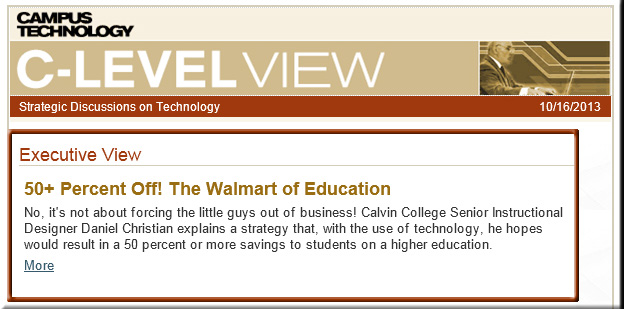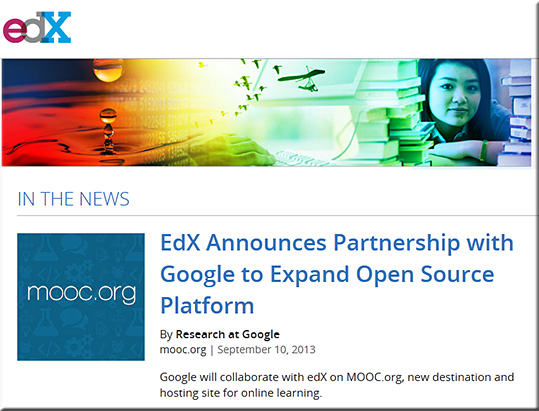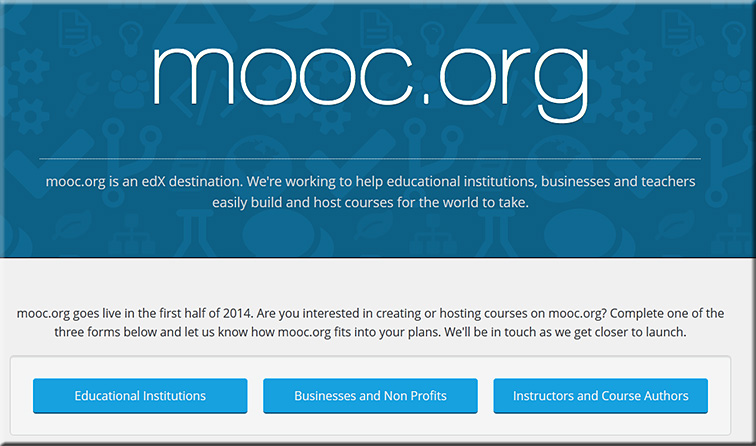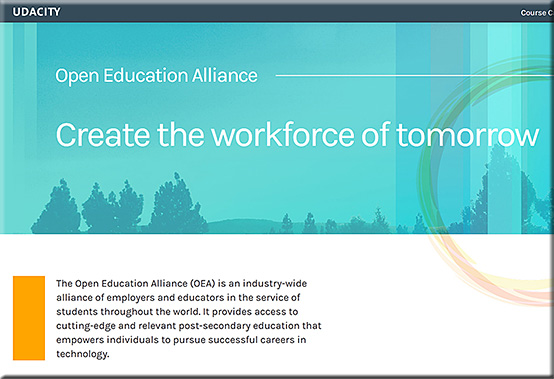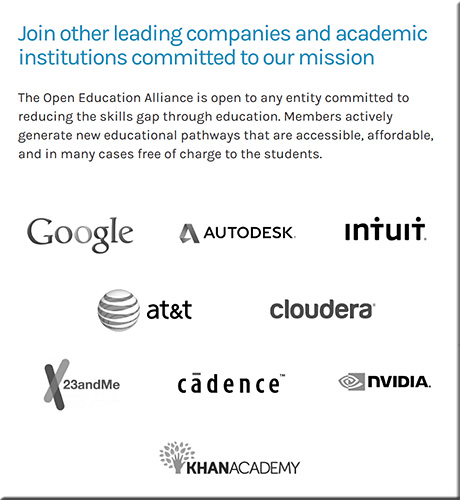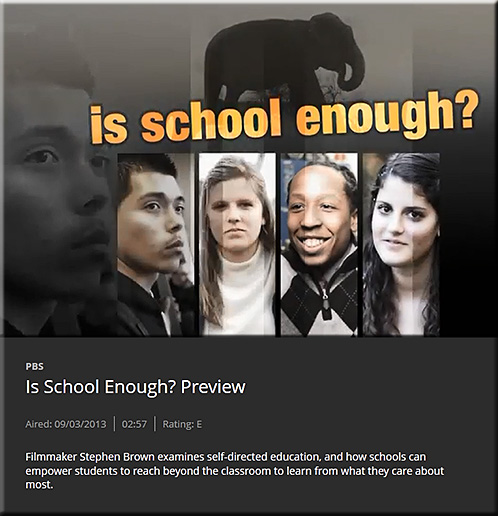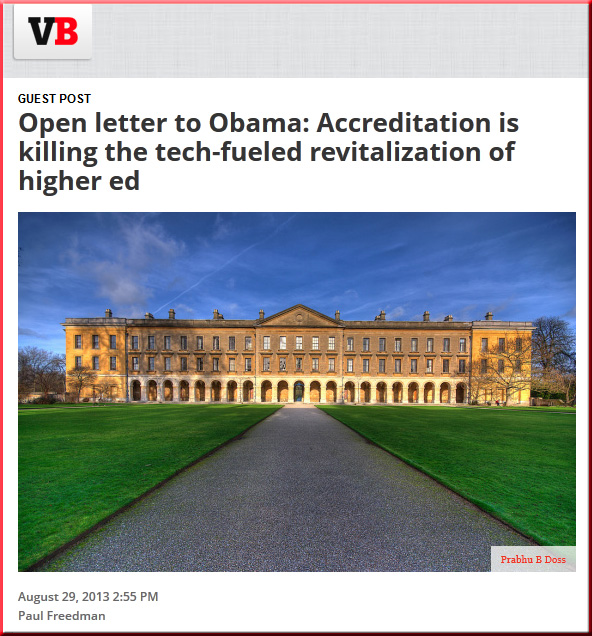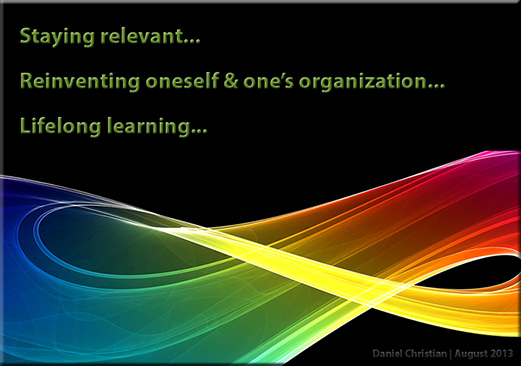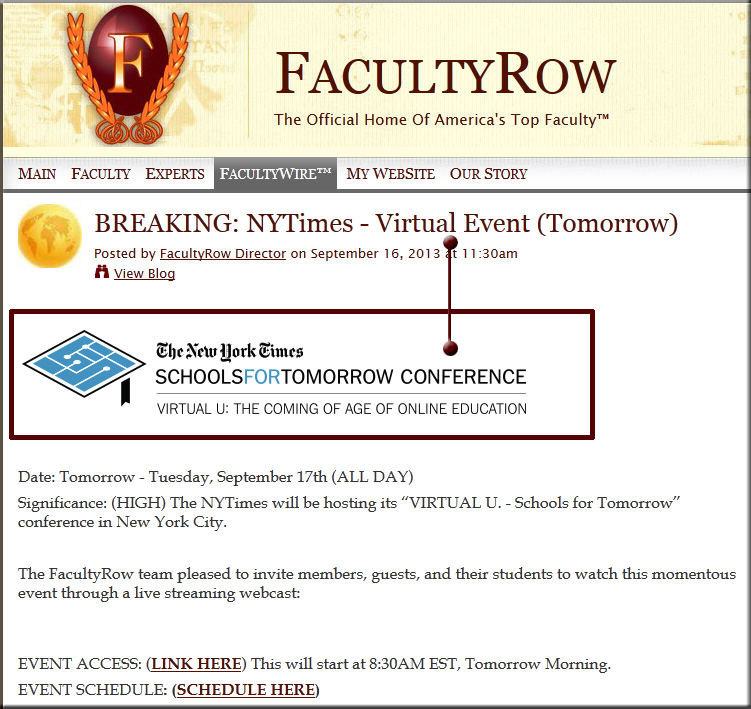
Check out the agenda:
7:00 a.m.
REGISTRATION
7:45 – 8:45 a.m. The Hall
BREAKFAST PANEL: BRIDGING THE KNOWLEDGE GAP
Technology is giving educators and students more tools to promote the exchange of ideas and expertise. That exchange is key to improved knowledge and empowerment, but without a level playing field, equal access and the right tools, we will never take full advantage of the opportunity to connect. Panelists will discuss the knowledge gap and how new technologies and motivated citizens are bridging that gap to support formal education as well as lifelong learning.
Sponsored by Bank of America
Aditya Bhasin, consumer marketing, analytics and digital banking executive, Bank of America
Gov. Jack Markell, Governor of Delaware
Ted Mitchell, President and C.E.O., NewSchools Venture Fund
Jennifer Tescher, President and C.E.O., The Center for Financial Services Innovation
Joanne Weiss, Former Chief of Staff to the Secretary, U.S. Department of Education
Moderated by John Merrow, Education Correspondent, PBS NewsHour
9 – 9:10 a.m.
WELCOME
Arthur Sulzberger Jr., publisher, The New York Times
9:10 – 9:45 a.m.
KEYNOTE ADDRESS
Sal Khan, founder of the Khan Academy
including 9:30-9:45 audience questions
9:45 – 10:30 a.m.
DEBATE: HAS THE UNIVERSITY AS AN INSTITUTION HAD ITS DAY?
Higher education has always been an array of autonomous institutions, each with their own courses, their own faculty, and their own requirements for their own degrees. But online education is starting to break down those lines in ways that are likely to lead to a lot more shared courses, consortia and credit transfers. In addition, there are a growing number of companies (not schools) providing higher education courses outside of the traditional higher education institutions. As we move towards the possibility of a multi-institution, multicredit qualification, is the traditional higher education institution in danger of losing applicants, income and identity?
Anant Agarwal, president, edX
Sal Khan, founder, The Khan Academy
Biddy Martin, president, Amherst College
Nancy Zimpher, Chancellor, SUNY
Moderated by David Leonhardt, Washington bureau chief, The New York Times
including 10:15 – 10:30 audience questions
10:30 – 11 a.m.
COFFEE BREAK
11 – 11:45 a.m.
THE DEALBOOK PANEL: WHAT’S THE NEW ERA BUSINESS MODEL FOR HIGHER EDUCATION?
The traditional idea that education is something the government provides, free, for the public good, is coming under assault from an increasing assortment of new ventures offering for-profit schools, for-profit online courses, tests, curricula, interactive whiteboard, learning management systems, paid-for verified certificates of achievement, e-books, e-tutoring, e-study groups and more. Which areas have the most potential growth — and where is the smart investment going?
Donn Davis, co-founder, Revolution
Tony Florence, general partner, NEA
Deborah Quazzo, founder and managing partner, GSV Advisors
Moderated by Andrew Ross Sorkin, columnist/editor DealBook, The New York Times
Including 11:30 – 11:45 audience questions
11:45 a.m. – 12:10 p.m.
CONVERSATION: THE DISRUPTION OF HIGHER EDUCATION
Michael Horn, co-founder, The Clayton Christenen Institute for Disruptive Innovation
In conversation with David Leonhardt, Washington bureau chief, The New York Times
12:10 – 12:45 p.m.
AUDIENCE DISCUSSION: INCREASING STUDENT ENGAGEMENT
Student attrition is as high as 90 percent for some of the biggest online courses, and remains a problem even
in smaller-scale courses when compared with traditional face-to-face classes. The problem is exacerbated for
community college students who enroll in online courses, or for low-performing students. How can we increase student engagement in online classes, particularly among students who lack competence or confidence?
Yvonne Chan, principal, Vaughn Next Century Learning Center
John Palfrey Jr, head of school, Phillips Academy, Andover
Diane Tavenner, founder and C.E.O., Summit Public Schools
Moderated by Bill Keller, Op-Ed columnist, The New York Times
12:45 – 1:15 p.m.
COLUMNIST CONVERSATION
Senator Bob Kerrey, executive chairman, Minerva Institute
in conversation with Bill Keller, Op-Ed columnist, The New York Times
1:15 – 3:00 p.m.
LUNCH PANEL A: INCREASING HIGHER EDUCATION AFFORDABILTY AND COMPLETION THROUGH ONLINE INNOVATIONS
A thoughtful conversation about innovative online models that are lowering the cost of degrees and increasing degree completion. How do these models work – and where are they going?
Sponsored by Capella
(Held in The Hall)
Mark Becker, President, Georgia State University
Scott Kinney, President, Capella University
Jamie Merisotis, President and C.E.O., Lumina Foundation
Burck Smith, Founder and C.E.O., StraighterLine
Moderated by Melody Barnes, C.E.O., Melody Barnes Solutions (former Director of the White House Domestic Policy Council)
1:15 – 3:00 p.m.
LUNCH PANEL B: A MATHEMATICIAN, SCIENTIST, DOCTOR, AND SOCIOLOGIST WALK INTO A ZOMBIE APOCALYPSE…WHO SURVIVES?
What skills give you the best shot at surviving a zombie apocalypse? Can you do anything to increase your odds of survival? Get an extended preview of UC Irvine’s MOOC “Society, Science, Survival: Lessons from AMC’s The Walking Dead” as we explore what math, science, public health, and sociology have to do with a zombie apocalypse and, in particular, survival. At the end of the panel, the audience will vote on who stands the best chance of survival: mathematician, scientist, doctor, or sociologist.
Sponsored by Instructure
(Held on 15th Floor)
Joanne Christopherson, Associate Director of the Demographic and Social Analysis M.A. Program, University of California, Irvine
Michael Dennin, Professor of physics and astronomy, University of California, Irvine
Sarah Eichhorn, Assistant Vice Chair for undergraduate studies in the mathematics department, University of California, Irvine
Melissa Loble, Associate Dean of distance learning, University of California, Irvine
Moderated by Josh Coates, CEO, Instructure
3 – 3:30 p.m.
COLUMNIST CONVERSATION
In an increasingly connected world, how do we ensure our students are being prepared to compete in a knowledge-based, global economy? What role does technology play in education, and what does the future of learning look like?
Arne Duncan, US Secretary of Education
interviewed by David Leonhardt, Washington bureau chief, The New York Times
3:30 – 4:15 p.m.
IS ONLINE THE GREAT EQUALIZER?
There is no doubt that we are in the middle of an online education revolution, which offers huge potential to broaden access to education and therefore, in theory, level the playing field for students from lower-income, lower-privileged backgrounds. But evidence to date shows that the increasing number of poorly designed courses could actually have the reverse effect and put vulnerable students at an even bigger disadvantage.
Karen Cator, C.E.O., Digital Promise
Dean Florez, president, 20 Million Minds Foundation
Candace Thille, director of the Open Learning Initiative (OLI) and assistant professor of education, Stanford University
David Wiley, founder, Lumen Learning
Moderated by Tina Rosenberg, Op-Ed Columnist, The New York Times
Including 4:00 – 4:15 p.m. audience questions
4:15 – 4:45 p.m.
COFFEE BREAK
4:45 – 5 p.m.
COLUMNIST CONVERSATION
Daphne Koller, co-founder, Coursera
in conversation with Ethan Bronner, Deputy National Editor, The New York Times
5 – 5:45 p.m
GAMECHANGERS: HOW WILL ONLINE EDUCATION REVOLUTIONIZE WHAT WE KNOW AND UNDERSTAND ABOUT LEARNING?
Traditionally, pedagogical research has been done in tiny groups; but new-generation classes of 60,000 students make it possible to do large scale testing and provide potentially game-changing research on how students learn best. Using the Big Data from online courses, we have access to new information about what pedagogical approaches work best. MOOCs, and many more traditional online classes, can track every keystroke, every homework assignment and every test answer a student provides. This can produce a huge amount of data on how long students pay attention to a lecture, where they get stuck in a problem set, what they do to get unstuck, what format and pacing of lectures, demonstrations, labs and quizzes lead to the best outcomes, and so on. How can we use Big Data for the good of the education profession, and not for “Big Brother”?
Daphne Koller, co-founder, Coursera
Alec Ross, senior advisor on innovation and former senior advisor to Secretary Hillary Clinton at the U.S. State Department
Paula Singer, C.E.O. Global Products and Services, Laureate Education
Moderated by Ethan Bronner, Deputy National Editor, The New York Times
including 5:30 – 5:45 p.m. audience questions
5:45 – 6 p.m.
COLUMNIST CONVERSATION
Amol Bhave, student, MIT
in conversation with Tina Rosenberg, Op-Ed Columnist, The New York Times
6 p.m.
CLOSING REMARKS
Gerald Marzorati, editorial director and general manager, conferences, The New York Times









